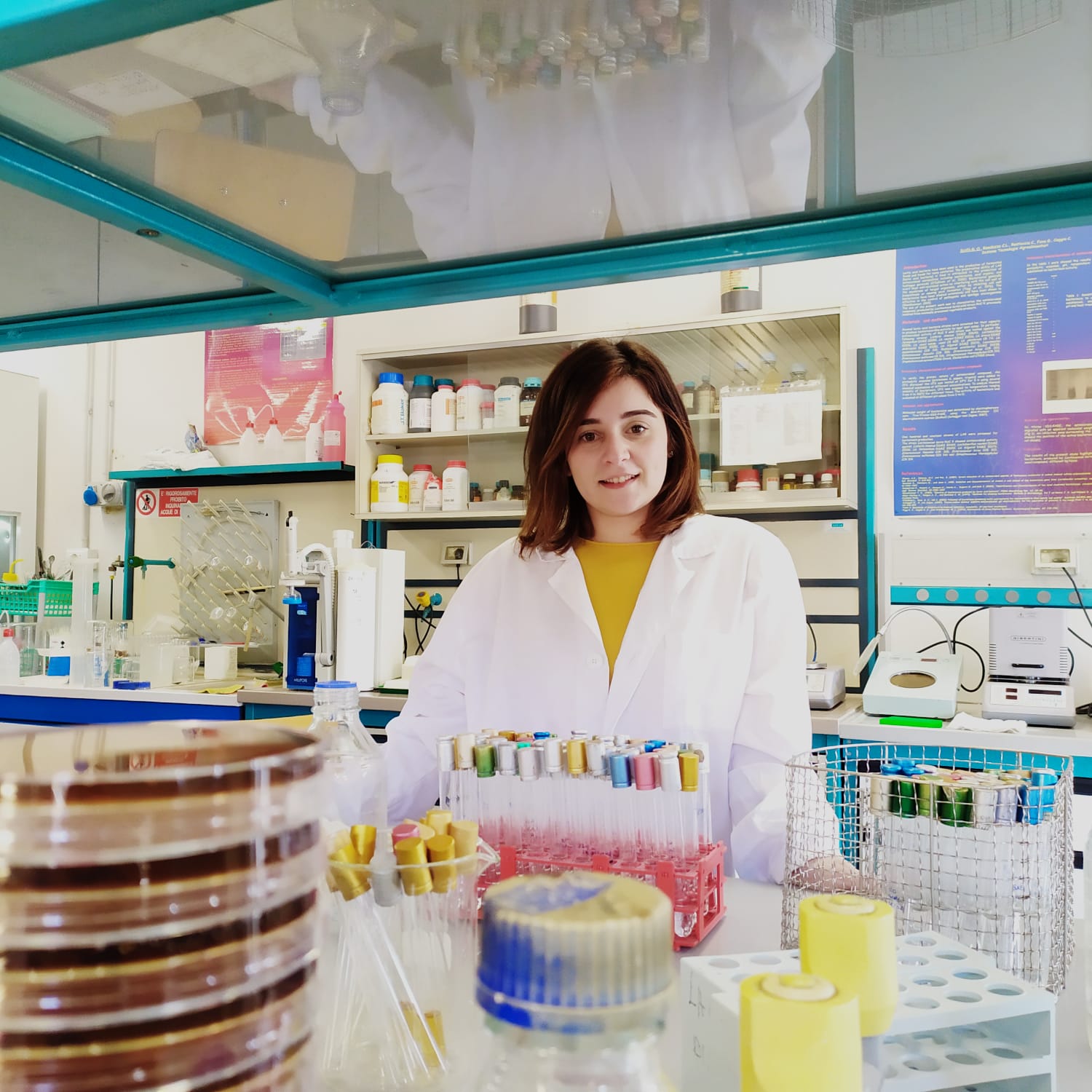
2019 – 2022: PhD course Biotecnology, at University of Catania.
2018 – 2019: Borsa di ricerca (Borsista del progetto INNOVIA. “Rafforzare l’occupabilità nel Sistema R&S e la nascita di SPIN OFF di ricerca in Sicila”, Centro di ricerca Olivicoltura, Frutticoltura e Agrumicoltura (CREA-OFA), Acireale (CT).
Research activity: Citrus peel waste can represent a source of environmental pollution and is one of the major sources of commercial pectin, since it is produced in large amount by agroindustrial by-products. The prebiotic and multifunctional activities of pectin derived oligosaccharides (POS) is very promising and obtained results, highlighted that POS could be used as an emerging prebiotics with improved properties due to their antioxidant, antimicrobial and antitumoral activities and for modulating-microbiota ability.
2018: Stage Consiglio per la Ricerca e la sperimentazione in Agricoltura - Centro di Ricerca Olivicoltura, Frutticoltura e Agrumicoltura (CREA-OFA), Acireale (CT). - Research activities:
- Extractions of bioactive substances from plant matrices using food grade techniques.
- Chemical analyses.
- Microbiological analyses.
2014 – 2017: Master’s Degree in Food Science and Technology, University of Catania; supervisors: Prof.ssa Cinzia Lucia Randazzo and Dr.ssa Valentina Butera. Degree thesis: “Caratteristiche funzionali di ceppi di Lactobacillus rhamnosus isolati da Pecorino Siciliano probiotico”. Final mark: 110/110 e lode.
2010 – 2014: Bechelor’s Degree in Herbal and Nutraceutical Sciences- L-29 Pharmaceutical Science and Technology, Univeristy of Catania; supervisor: Prof.ssa Rosaria Acquaviva. Degree thesis: “Preparati fitoterapici di Punica granatum L. dalla progettazione alla preparazione”. Final mark: 110/110 e lode.
2010: High School diploma, Liceo Classico “Gulli e Pennisi” di Acireale.
-
Olive oil by-products as a new functional food and source of nutritional food ingredients*.
The project aims at the valorization of by-products from the virgin olive oil production throug different microbial pools. The olive mill wastewater so treated will be proposed as a novel functional food with high polyphenols content. Omics approach will be applied in order to monitor the fermentation kinetics of olive mill wastewater.
In addition, the project aims at the set up of a new "olive creamy paté" for human consumption, through a micro-fermentation process combining microbial pools of yeast strains and lactic acid bacteria able to debitter, stabilize and increase the nutritional value of a product with a high concentration of nutraceutical molecules.
*This project is supported by PON Research and Innovation Scholarship 2014-2020 (D.D. 2008, 22/10/2019) and it will be carried out by Olearia Consoli Pasquale & F.lli s.n.c Company (Adrano, Catania) and the Polytechnic Institute of Bragana, Portugal, Mountain Research Centre (CIMO).